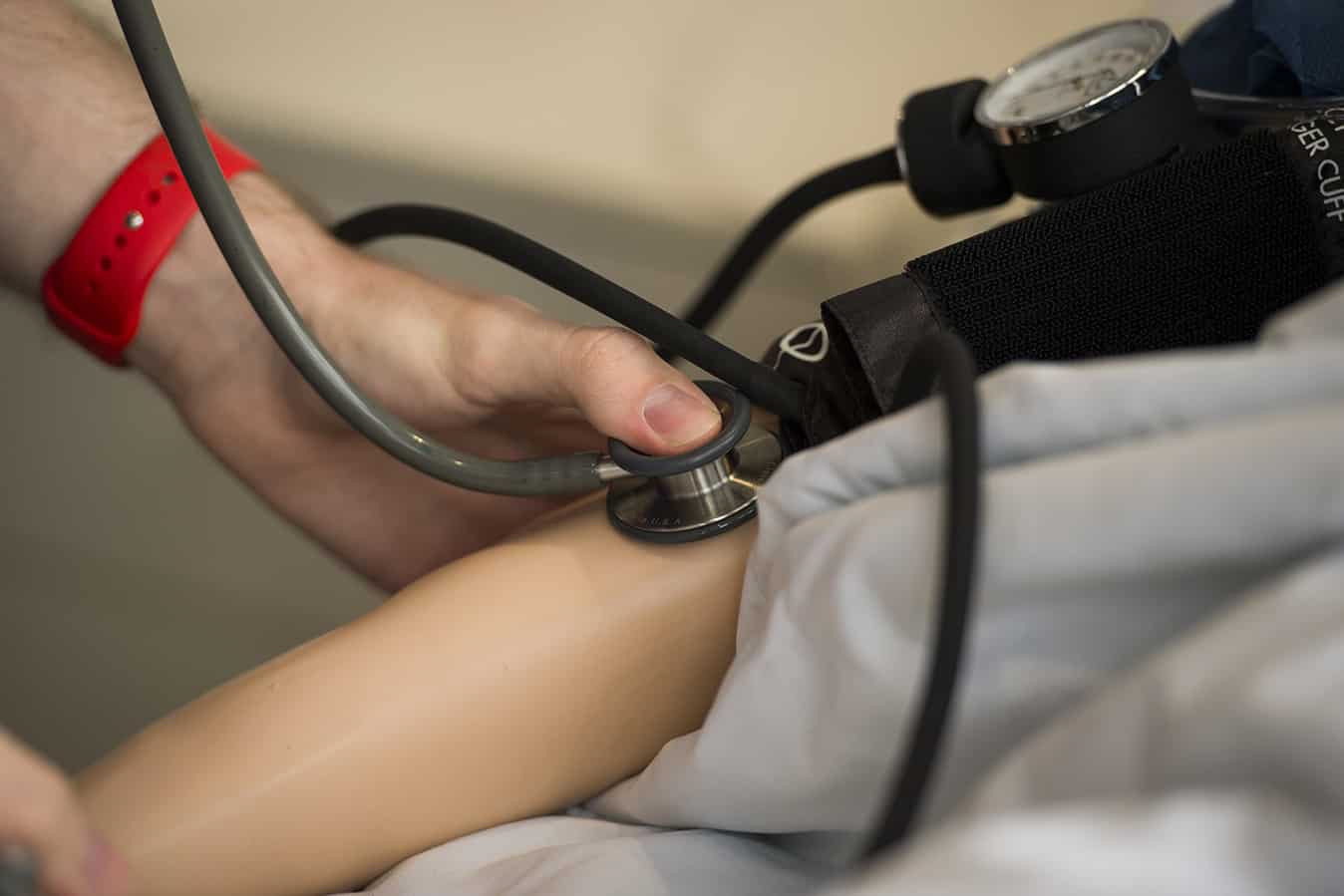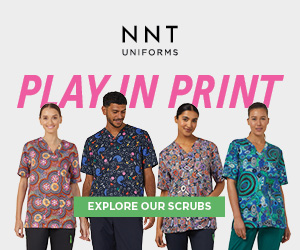The way pre-registration nursing students’ link what they learn in the tertiary setting to the realities of clinical practice has long been the subject of nursing discourse.1,2
The ‘theory-practice gap’, describes the gaps between the completion of pre-registration study and the transition to graduated practice,3 and bears similarities to those pre-registration nursing students face each time they undertake clinical practicum.
Transitioning from the safety of the tertiary institution to clinical practice presents inherent challenges, stresses, and vulnerabilities for novice nurses.1,4-7
Bridging gaps in knowledge and skill and addressing student vulnerability requires multiple strategies and resources. Teaching clinical skills in a clinical laboratory context before attending clinical practicum is one such strategy.8 However, varying curricula requirements, together with time and space constraints and increasing academic to student ratios, often mean that pre-registration nurses have limited opportunity to practice and master newly acquired skills.9,10 This can leave students feeling under-prepared to face clinical practicum.11
Many pre-registration nursing programs offer students opportunities for unsupervised independent skills to supplement supervised clinical laboratory practice. Unsupervised clinical practice laboratories pose inherent risks and challenges for novice nurses, including the risk of injury when practising inherently hazardous skills. These include manual handling or sharps related skills and the possibility of reinforcing incorrect technique placing both the student and the patients they will care for at risk.
To minimise these risks, a university in Australia sought to embed a pilot support program for first-year pre-registration Bachelor of Nursing students to practice and enhance foundational clinical skills, mentored by specially trained second-and third-year pre-registration nursing students.
The mentoring process allows students to collaboratively practice skills and communicative elements of practice they have learned to facilitate knowledge and skill consolidation and encourage attendance.10 The opportunity to ask the mentors who had ‘been there before them’ about what to expect and how to prepare for clinical practicum also proved valuable, increasing mentee self-confidence and self-efficacy and facilitating socialisation to the nursing profession.
Making a positive impact on the transition from the university clinical learning and teaching environment to the real world of clinical practicum throughout the nurses’ journey to graduation requires well developed and appropriate preparatory opportunities. The provision of discretionary clinical practice laboratories supported by student mentors is an important addition to the suite of educational opportunities available to students.
We acknowledge other faculty, academic, and professional staff members who have helped facilitate this project.
Funding: A small university-based grant provided a means for undertaking this pilot project.
References
-
Greenway K, Butt G, Walthall H. What is the theory-practice gap? An exploration of the concept. Nurs Educ Pract, [Internet]. 2019 Jan [cited 2021 June 15];34:1-6. Available from: https://doi.org/10.1016/j.nepr.2018.10.005
-
Saifan A, Eid AbuRuz M, Rami M. Theory practice gap in nursing education: a qualitative perspective. J Soc Sci. [Internet]. 2015 May [cited 2021 June 28]; 11(1):20-29. Available from: http://dx.doi.org/10.3844/jssp.2015.20.29
-
Monaghan T. A critical analysis of the literature and theoretical perspectives on theory-practice gap amongst newly qualified nurses within the United Kingdom. Nurs Educ Today. [Internet]. 2015 Aug [cited 2021 July 5];35(8);e1-e7. Available from: https://doi.org/10.1016/j.nedt.2015.03.006
-
Benner P. From novice to expert: Excellence and power in clinical nursing practice. Menlo Park: Addison-Wesley; 1984. pp. 13-34.
-
Hayes C, Power T, Davidson PM, Daly J, Jackson D. Simulation: smoothing the journey from undergraduate to new graduate. J Nurs Manag [Internet]. 2018 Jul [cited 2021 July 2];26(5): 495-497. Available from: https://doi.org/10.1111/jonm.12676
-
McCloughen A, Levy D, Johnson A, Nguyen H, McKenzie H. Nursing students’ socialisation to emotion management during early clinical placement experiences: A qualitative study. J Clin Nurs. [Internet]. 2020 Jul [cited 2021 June 28];29(13-14):2508-2520. Available from: DOI: 10.1111/jocn.15270.
-
McPherson S, Wendler MC. Safe clinical practice in pre-licensure nursing students: A concept analysis. Nurs Forum. [Internet] 2020 Jul [cited 2021 June 28];55(3):513-522. Available from: https://doi-org.ezproxy.lib.uts.edu.au/10.1111/nuf.12457
-
Francis G, O’Brien M. Teaching clinical skills in pre-registration nurse education: value and methods. Br J Nurs. [Internet] 2019 Apr [cited 2021 July 2];28(7):452-456. Available from: DOI: 10.12968/bjon.2019.28.7.452.
-
Irvine S, Williams B, McKenna L. How are we assessing near-peer teaching in undergraduate health professional education? A systematic review. Nurs Educ Today. [Internet]. 2017 Mar [cited 2021 July 2];50(42);42-50. Available from: https://doi.org/10.1016/j.nedt.2016.12.004
-
Stenberg M, Carlson E. Swedish student nurses’ perception of peer learning as an educational model during clinical practice in a hospital setting – an evaluation study. BMC Nurs. [Internet]. 2015 Mar [cited 2021 July 2];14(1):1-7. Available from: DOI: 10.1186/s12912-015-0098-2.
-
Solvik E, Solveig S. Training nursing skills: A quantitative study of nursing student’s experiences before and after clinical practice. Nurs Res Pract. [Internet]. 2018 Nov [cited 2021 July 2]; 1-9. Available from: DOI: 10.1155/2018/8984028.
Authors:
Dr Carolyn Hayes RN BHsc(Nurs) GradCertHEd PhD is Lecturer, Acute Care Nursing at The University of Sydney, Faculty of Health and Medicine, Susan Wakil School of Nursing and Midwifery in NSW
Sonia Matiuk RN, BN, Grad cert Neuroscience Nursing, MN is Lecturer, Nursing in the School of Nursing and Midwifery, Faculty of Health, UTS, Ultimo NSW
Lisa Townsend BN (UTS), Grad.Dip. MHN (UTS), M.Ed.(Ad Ed) (UTS), Grad Cert CFHN (UTS) is Clinical Nurse Consultant (CYMHS Hornsby) Berowra Heights NSW








